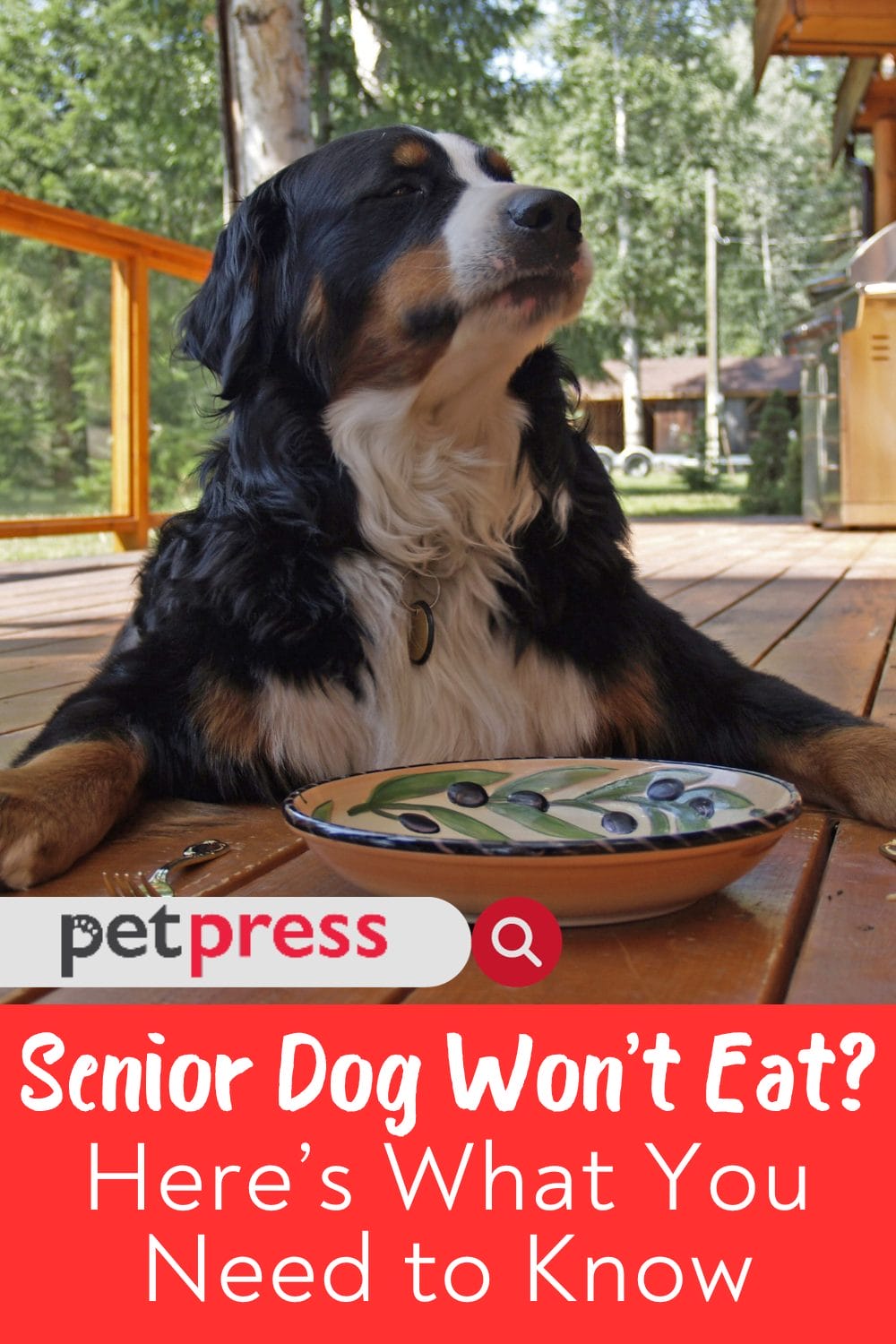
Is your senior dog experiencing a lack of appetite? Though it is common, seeing your senior dog won’t eat can be distressing.
In this blog post, we will discuss simple strategies that can help restore your senior dog’s appetite and enhance their quality of life.
What are the reasons why dogs refuse to eat?
Before diving into the solutions, it’s important to understand why your senior dog might be refusing to eat.
Here are some of the causes of your dog’s diminishing appetite:
Dental Problems
Senior dogs often experience dental issues, such as gingivitis or broken teeth, resulting in painful eating. Signs include bad breath, reluctance to chew, and excessive drooling.
Reduced Sense of Smell or Taste
The sense of taste and smell may diminish as the dog ages. Providing nutritious and appealing meals and offering various delicious food options helps keep their appetites up.
Underlying Health Issues
Older dogs may lose their appetite due to health issues like kidney or liver disease or cancer. These conditions can cause discomfort or nausea, leading to a reduced appetite. If your dog stops eating suddenly, seek immediate veterinary care.
Medication Side Effects
Medication for health conditions in senior dogs may cause a loss of appetite. Speak to your vet to discuss side effects, possible dosage adjustments, or alternative medication.
Changes in Environment
Lastly, environmental or routine changes can also affect your senior dog’s appetite. Dogs are creatures of habit, and changes can cause anxiety and stress, resulting in a refusal to eat. Ensuring your dog has a stable, comforting environment can help tackle this issue.
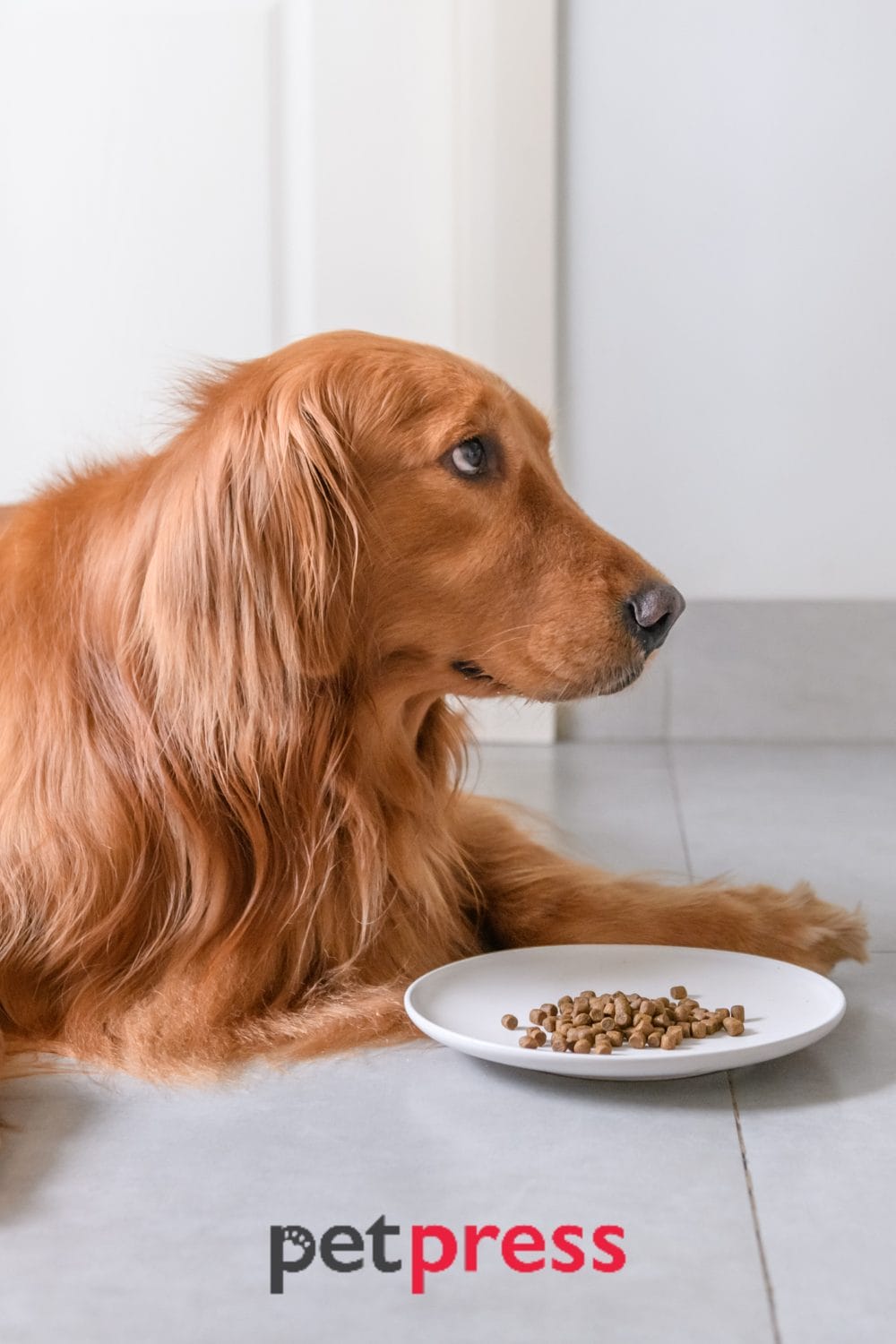
7 Tips to Encourage Senior Dogs to Eat
Now that we understand some potential causes, let’s look at some practical tips to help encourage your senior dog to eat.
Strategy 1: Evaluate Their Diet
When it comes to your senior dog’s diet, it’s crucial to examine it closely. Make sure to provide them with high-quality, easily digestible food that’s specifically designed to meet their age and nutritional needs.
Here are some examples of foods that can help boost a dog’s appetite:
- Boiled Chicken or Turkey: Dogs love cooked, boneless chicken or turkey as a source of lean protein. Add it to their food or serve it as a standalone meal.
- Bone Broth: Simmer animal bones in water for an extended time to make bone broth. Make your dog enjoy it as a drink, or add it to food.
- Canned Pumpkin: Pumpkin is filled with dietary fiber, essential vitamins, and minerals and can help make your dog feel full.
- Yogurt: Plain yogurt is a great source of probiotics, which can improve gut health. Serve it plain, or mix in some fresh fruit, veggies, or cooked meat for extra flavor.
- Peanut Butter: Not only is peanut butter full of protein and healthy fats, many dogs love the taste. Be sure to choose an unsweetened variety and serve it as a treat, or use it to hide pills for easier pill-giving.
- Fruits & veggies: Try blending them into a smoothie with some yogurt for your pup or making treats.
- Low-Sodium Chicken or Beef Broth: Adding low-sodium chicken or beef broth to their meals can enhance the taste of their food.
- Sardines: Sardines are packed with omega-3 fatty acids to aid digestion and improve appetite and overall health. Opt for sardines packed in water or juices without added salt or seasonings.
When introducing new foods or altering your dog’s diet, it’s important to do it slowly and seek advice from your vet. This helps ensure it suits their dietary needs, overall health, and nutritional requirements.

Strategy 2: Enhance Palatability
If your senior dog is fussy about food, making their meals more delicious can motivate them to eat. Improving the taste of your dog’s meals can also increase their appetite and make mealtime more enjoyable. Here are some ways to make their food more enticing:
- Warming your dog’s food can enhance its aroma and appeal, but be cautious not to serve it too hot.
- Adding a small amount of low-sodium broth to a dog’s food can enhance flavor and moisture, making it more appealing. However, it is important to avoid broths with added salt or seasonings, as they can harm dogs.
- Mix a small amount of high-quality wet food with your dog’s kibble to enhance flavor and moisture, ensuring it suits their age and dietary needs.
- Incorporate natural flavor enhancers like plain canned pumpkin, cooked sweet potato, or shredded carrots to add taste and texture to your dog’s meals.
- Try different textures to cater to your dog’s preferences. If they’re not interested in dry kibble, mix it with water or low-sodium broth to soften it, or explore smaller-sized or softer varieties.
- Experiment with toppers like freeze-dried meat, grated cheese, or cooked lean meat such as chicken or turkey to enhance your dog’s regular food, ensuring to use them in moderation and ensuring their safety for dog consumption.
- Avoid using seasonings and spices as they can be harmful or toxic to dogs; instead, opt for natural, dog-safe ingredients without salt, sugar, or seasonings.
Introduce dietary changes gradually and monitor your dog’s response. Consult a vet if your dog has dietary restrictions or health issues before modifying their diet.
Strategy 3: Establish a Feeding Routine
Establishing a consistent feeding routine can be beneficial for a senior dog. Serve their meals simultaneously daily and ensure they have a quiet, comfortable space to eat without distractions. A calm environment will help them feel secure and encourage regular eating habits.

Strategy 4: Address Dental Issues
Dental problems can significantly impact a senior dog’s appetite. Regular dental check-ups and professional cleanings are crucial.
In addition, provide appropriate dental chews or toys to help keep their teeth clean and reduce discomfort. Consult your veterinarian about potential dental treatments to alleviate pain or discomfort.
- Regular Brushing: Use a toothbrush with soft bristles and toothpaste specifically formulated for pets. Start slowly and make it a positive experience by offering treats and praise.
- Dental Chews and Toys: Dental chews or toys can help clean your dog’s teeth and promote healthy gums. Look for products that are specifically designed to combat plaque and tartar buildup.
- Dental Wipes or Oral Rinses: Dental wipes/rinses aid oral hygiene by reducing bacterial growth and freshening your dog’s breath. An alternative to brushing or a supplemental method.
- Professional Dental Cleanings: Just like humans, dogs may require professional dental cleanings from a veterinarian. These cleanings involve removing tartar buildup and addressing any dental issues under anesthesia.
- Appropriate Dental Diet: Some dog food brands offer specialized dental diets to reduce plaque and tartar buildup. These diets often have kibble shapes and textures that help mechanically clean the teeth while your dog chews.
- Regular Veterinary Check-ups: Regular check-ups with your veterinarian are crucial to monitor your dog’s dental health. Your vet can identify dental issues early and recommend appropriate treatment or preventive measures.
- Maintain a Healthy Diet: Provide your dog with high-quality, balanced meals that support their dental well-being. Avoid excessive sugary treats or human foods that can lead to tooth decay.
- Monitor for Signs of Dental Problems: Watch out for dental issues like bad breath, swollen or bleeding gums, loose teeth, difficulty eating, or excessive drooling, and consult your veterinarian if you notice these signs for a dental examination.
Every dog is unique, and their dental care needs may vary. Personalized recommendations based on your dog’s breed, age, and overall health help ensure your dog enjoys a healthy mouth and a happier, more comfortable life.
Strategy 5: Manage Underlying Health Issues
Certain health conditions can lead to a loss of appetite in senior dogs. Kidney disease, arthritis, or gastrointestinal disorders may decrease food interest.
Regular veterinary check-ups and proper management of these conditions are essential. Discuss any concerns or symptoms with your veterinarian for an appropriate diagnosis and treatment options.
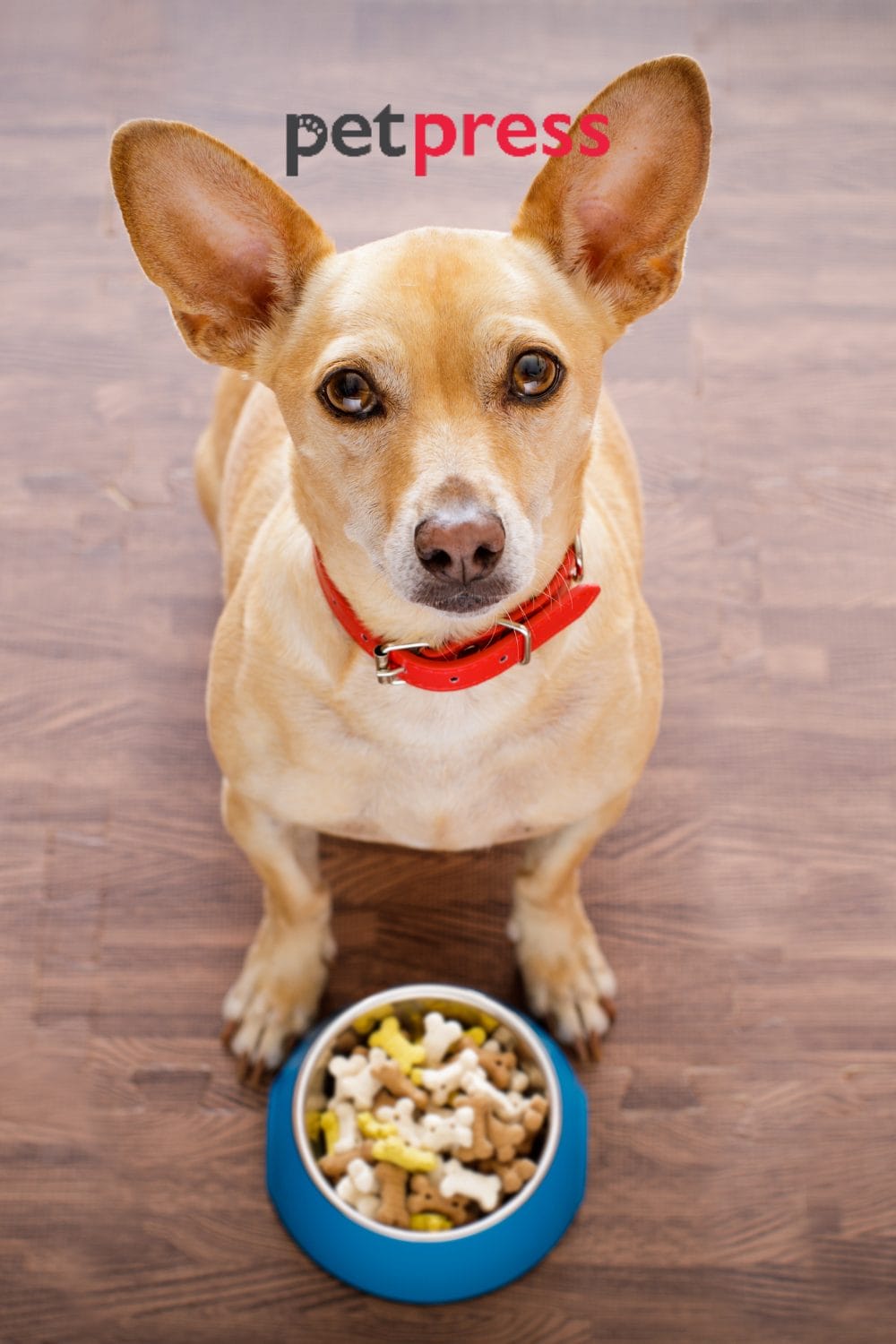
Strategy 6: Minimize Stress and Anxiety
Stress and anxiety can also play a role in a senior dog’s lack of appetite. Changes in their environment, routine, or adding a new pet or family member can trigger stress and make them lose interest in food.
Create a calm and predictable environment for your dog, and provide plenty of love and attention to help reduce any stressors.
Strategy 7: Seek Professional Advice
If your senior dog won’t eat despite your best efforts, it’s crucial to consult with a veterinarian.
They can conduct a thorough examination, perform necessary tests, and provide tailored advice or treatment options based on your dog’s needs. Vets will help ensure your senior dog receives the best care possible.
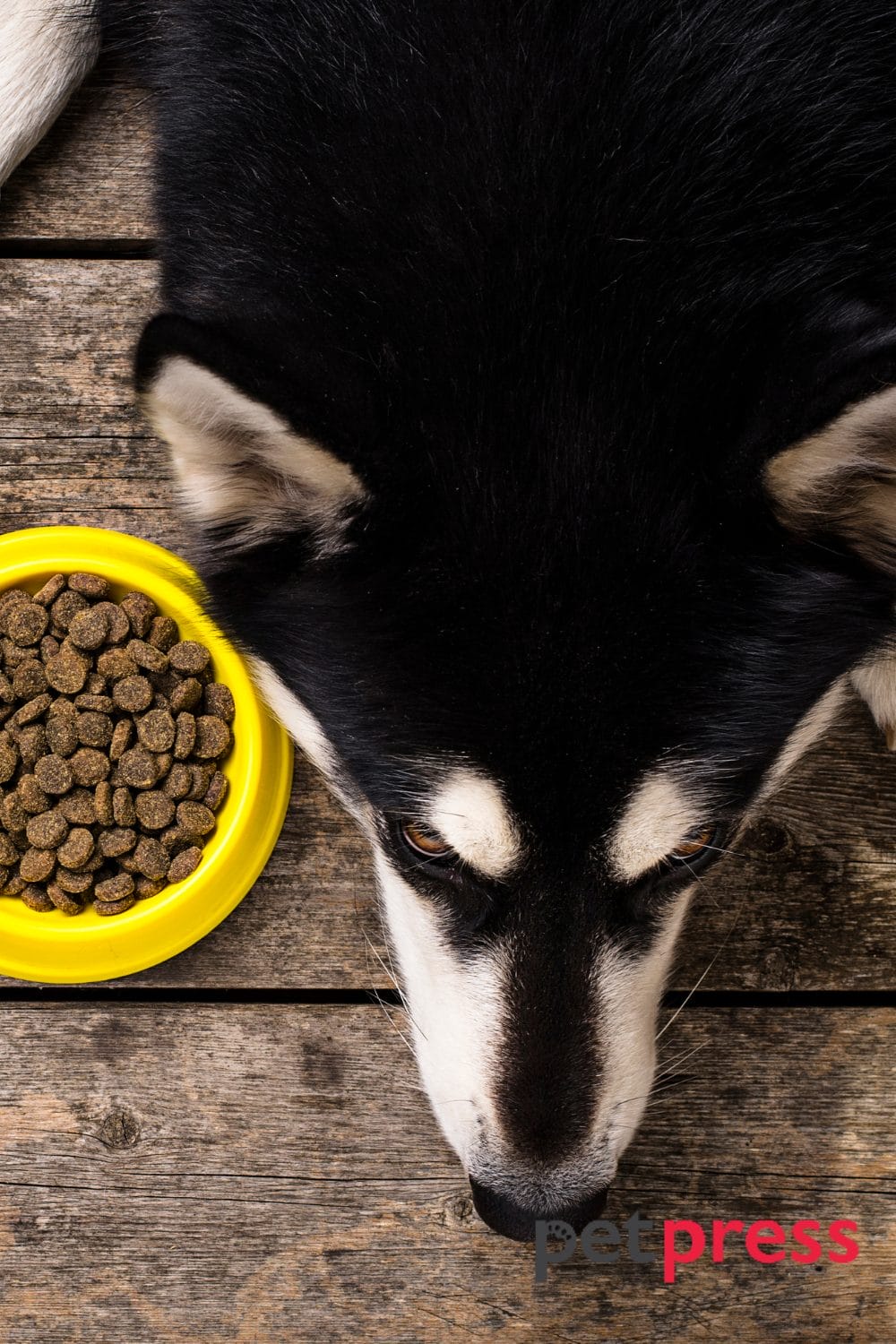
Conclusion
Caring for your senior dog’s appetite is crucial for their health and well-being. If the senior dog won’t eat, strategies can be employed to restore their enthusiasm for eating.
In the world of dogs, uniqueness reigns supreme! So, gear up with patience and persistence, and get ready to consult your vet for personalized guidance.
By unraveling the mysteries behind your senior dog’s finicky appetite and implementing the right strategies, you’ll witness a remarkable transformation in their eating habits and overall quality of life.
As our furry friends gracefully age, their comfort and happiness become paramount. After all, a healthy dog equals beaming, tail-wagging joy!
Share this blog post with other pet owners experiencing similar challenges with their senior dogs.
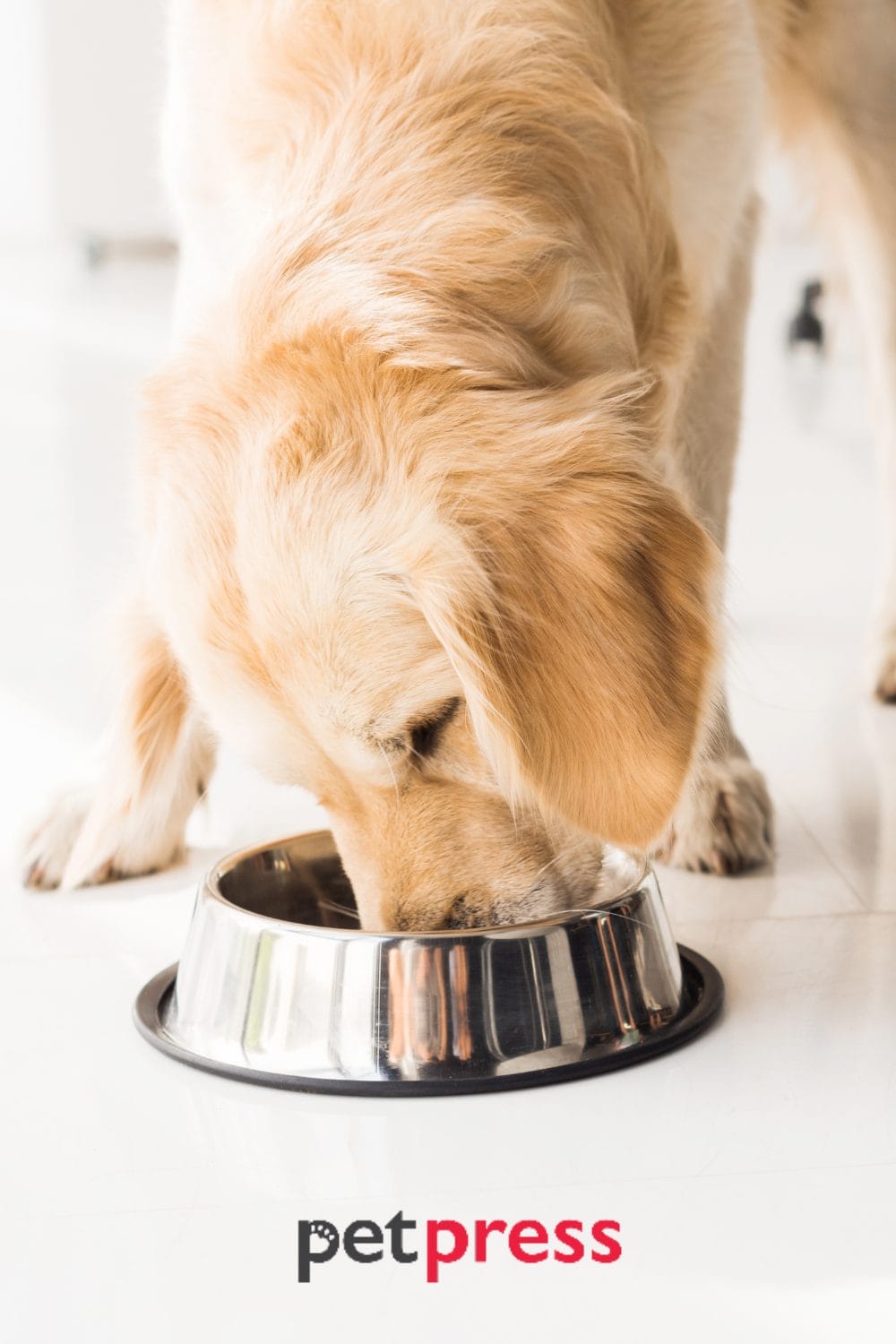
Frequently Asked Questions (FAQs)
Several factors, including dental problems, reduced senses, health issues, medication side effects, or environmental changes, could contribute to a loss of appetite in senior dogs.
High-quality, easily digestible food formulated for senior dogs is ideal. Wet food, warmed slightly or enhanced with low-sodium chicken broth or small amounts of meat, can also be appealing.
Serve meals consistently daily and ensure a quiet, comfortable environment free of distractions. This routine will help your senior dog feel secure and encourage regular eating habits.
Regular dental check-ups, professional cleanings, appropriate dental chews, and toys can help alleviate dental issues. Consult your veterinarian for further advice or necessary treatments.
If your senior dog’s appetite problems persist despite implementing strategies or if you notice any concerning symptoms, it’s important to consult with a veterinarian for a proper diagnosis and tailored treatment options.
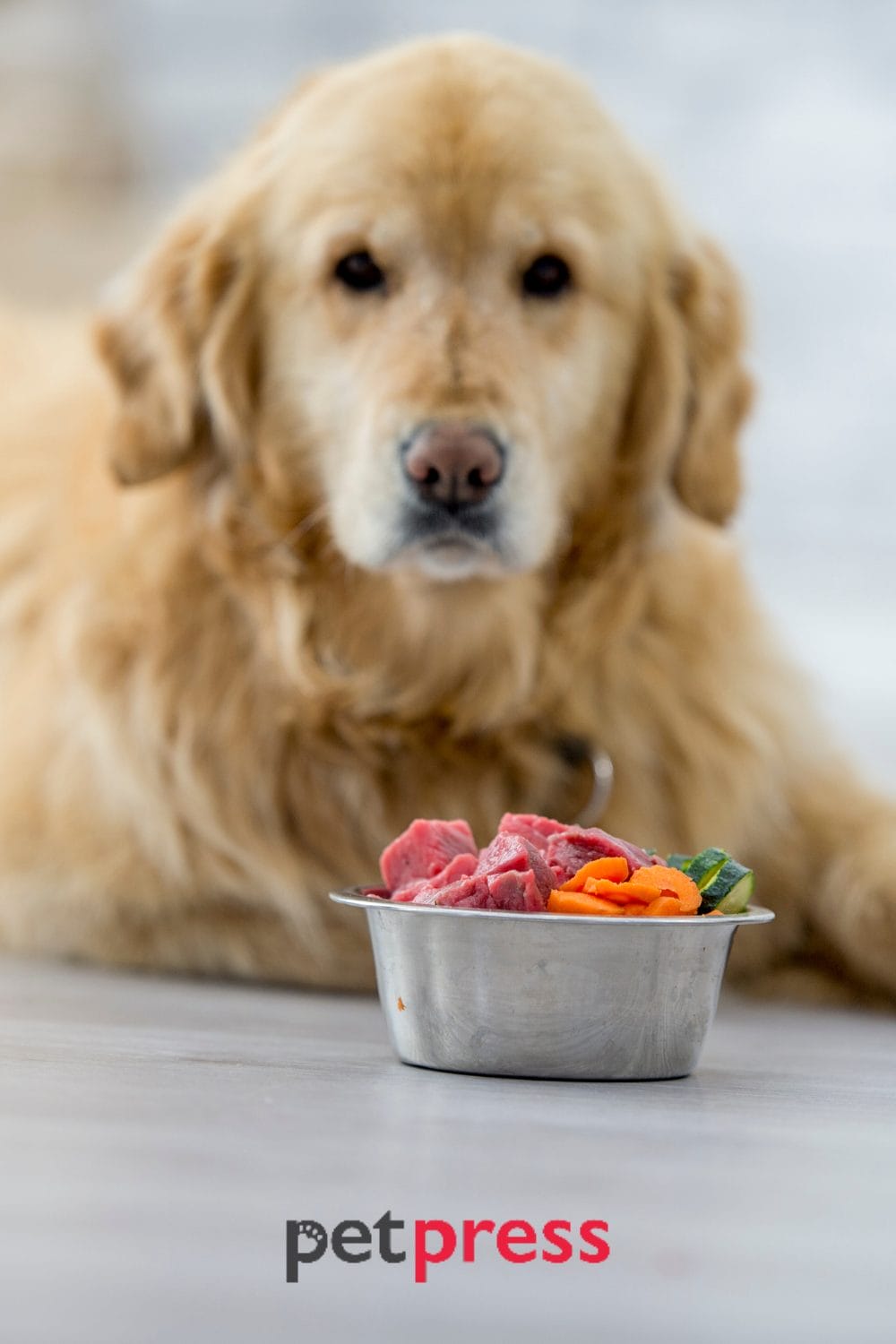
Related Posts:
Best Collection of 50 Short Dog Quotes for Facebook
50 Fluffy Dog Quotes That Make Your Life Charming and Better
- Does Cat Litter Melt Ice? The Complete Guide to Winter Safety - January 30, 2026
- Happy Tail Dogs: Understanding This Common Canine Condition - January 29, 2026
- How Cold Can Outdoor Cats Handle? Feline Winter Safety - January 27, 2026


GIPHY App Key not set. Please check settings